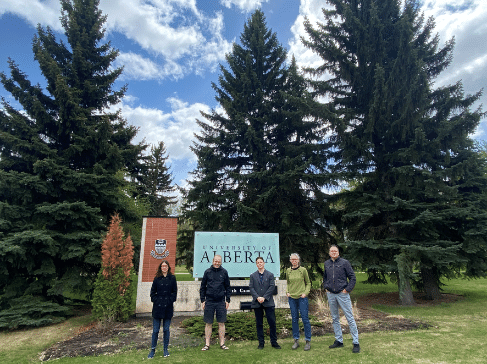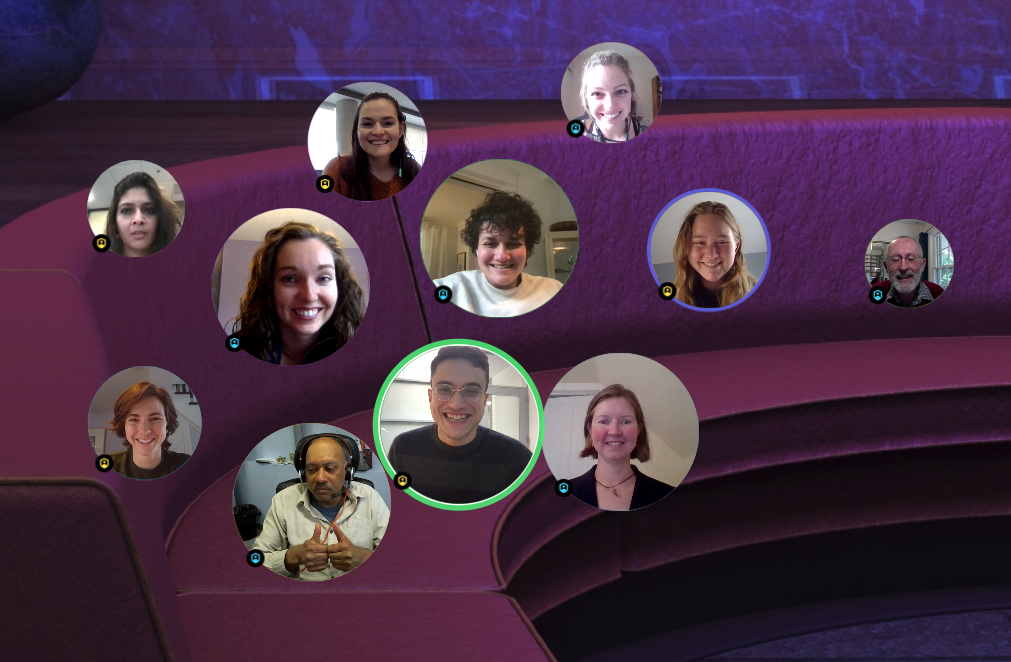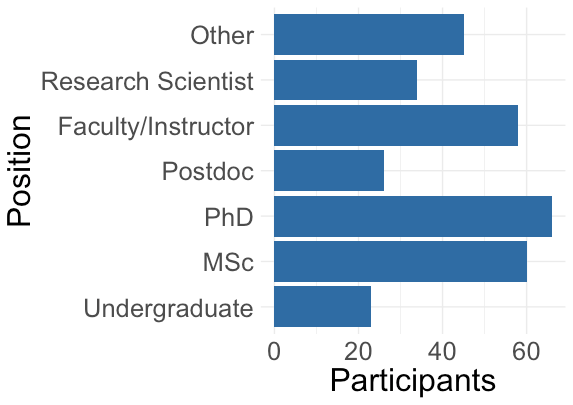About CanFunNet Annual Meetings
The Canadian Fungal Research Network (CanFunNet) was established in 2019 to promote fungal research in Canada by facilitating dialogue among scientists working across diverse sub-disciplines and institutions. The first CanFunNet conference was held virtually in July 2020, with an audience of 310 participants from 89 institutions across Canada, and 63 presenters representing all career stages. This initial success was followed up by a joint virtual conference with the Great Lakes Mycology Meetings in May 2021 with 339 participants from 94 institutions in 15 countries and 152 presenters (see the 2020 program and 2021 program).
This year, we are excited to go west for the first time with CanFunNet for a virtual meeting hosted by the University of Alberta in Edmonton. Continuing in the footsteps of previous meetings, our program is being structured around an exciting line-up of plenary talks and invited sessions under the theme “Fungi at the Crossroads of Health and Ecosystems”. Our scientific program will continue to showcase cutting-edge mycological research from around the world with a distinctly Canadian angle. This year’s conference, after two years of a global pandemic, will feature thoughtful new interactive features that will provide enriched opportunities to exchange information and ideas and form networks and collaborations in fungal research.


Presentation awards
In 2021, the majority of all participants in the CanFunNet meeting were early career fungal biologists. CanFunNet is committed to providing opportunities for students and postdocs to present their work, and to supporting research excellence among these trainees. This year, through the generous support of the University of Alberta Department of Biological Sciences, we are happy to announce that all trainees presenting original research will have the opportunity to be evaluated by volunteer judges as part of a presentation competition. Awardees will be announced at the end of the conference.

Participant career information, 2021 Conference
Why do we charge a registration fee?
CanFunNet is a non-profit organization, and as such, we strive to keep the cost of attending our conferences as low as reasonably possible. ~95% of the registration fee goes directly towards covering overhead costs associated with hosting the conference (website and platform development). The rest is earmarked for funding Accessibility and Presentation Awards for trainees and covering other incidental costs, including hosting social interaction platforms and activities. Despite charging a fee, we rely heavily on our sponsors to ensure the conference can pay for itself.
*NEW IN 2022* Accessibility Awards
This year, through the generous support of the University of Alberta Faculty of Agricultural, Life & Environmental Sciences and the Department of Renewable Resources, we are distributing a limited number of awards to waive the CanFunNet22 registration fee for a select number of individuals who would otherwise not be able to attend. Awards will be provided on a need-by-need, case-by-case basis. Please click here to apply, and we will get back to you before the speaker registration and abstract submission deadline of March 31, 2022. Thank you !
Statement on Equity, Diversity and Inclusion
The organizers of the Joint Canadian Fungal Research Network (CanFunNet) seek to serve the professional interests of all participants. This mission requires the cultivation of a culture that welcomes and uplifts attendees. It is in the professional interests of all members to be recognized, feel respected and safe, and have opportunities to lead in our scientific community, irrespective of cultural background or identity.
It is incumbent upon the organizers and all participants in these meetings to demonstrate through leadership, statements, and actions that anyone can be a successful scientist. This can be achieved through consistent commitment to diversity, equity and inclusion in our meetings and by providing supportive opportunities for participants to discuss barriers that prevent diversification.
The challenges we face are shared by other scientific disciplines and societies at large, but this does not justify inaction against these challenges. Often-unrecognized prejudices and privileges affect our professional trajectories, which are not only based on our value as scientists, but also our race and ethnicity, country of origin, sex, gender identity, religion, age, education level, socioeconomic status, marital status, parental status, physical ability, neurological differences, political affiliation and/or sexual orientation. To strengthen the field of mycology and support all mycologists, at every stage of their career, we strive to break down barriers to participation and to recognize the value of a variety of opinions, backgrounds and experiences to the broader community. We are more similar than we are different and, through adoption of this statement, pledge to respect all individuals without precondition.
This document is derived from the Mycological Society of America’s Statement on Diversity.
